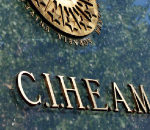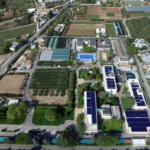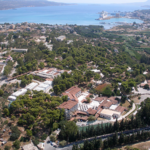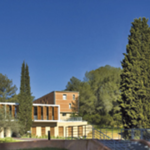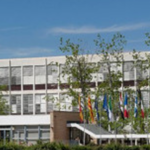Olive tree sustainable development
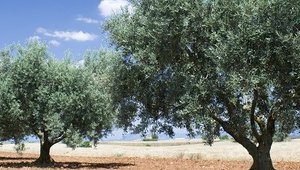 Socio-economic analysis of olive tree varieties market strategies, standards & norms and long term evolution of this Mediterranean tree: interactions between economic, political and biological ecosystems and strategic options for a sustainable development.
Socio-economic analysis of olive tree varieties market strategies, standards & norms and long term evolution of this Mediterranean tree: interactions between economic, political and biological ecosystems and strategic options for a sustainable development.
Objectives
Promote combined approaches for analysis in both biological and social sciences:
- Identify key factors for the diversity of olive trees and oils in Kabylia (Algeria), in the Rif Area (Morocco), in South of France and in producing countries.
- Define and analyse an oleasters and cultivars collection in Marrakech and Montpellier
Activities
-
Research in biology and archeo-botanics: surveys, data base and interpretation of the olive tree evolution key factors.
-
Social science research: analysis of value chains, standards and stakeholders strategies notably nurseries strategies, varieties market factors and institutional norms.
-
Training through research (doctoral training) and interdisciplinary approach (biology and socio-economics).
-
Setting up of an observatory of olive tree in the Mediterranean with economic and ecological dimensions (France, Morocco, producing countries).
Results and impacts
-
Strengthening of interdisciplinary research and cooperation network on olive tree in the Mediterranean;
-
Synergies between global olive tree collections (Cordoba, Marrakech, Izmir) and between national and regional observatories (Madrid COI, CIHEAM and national research institutes);
-
Development of topics of research and training (at Masters and PhD levels).
Main publications
Ater M. (ed.), Essalouh L. (ed.), Ilbert H. (ed.), Moukhli A. (ed.), Khadari B. (ed.). (2016). L’oléiculture au Maroc de la préhistoire à nos jours : pratiques, diversité, adaptation, usages, commerce et politiques. Montpellier : CIHEAM. 215 p. (Options Méditerranéennes : Série A. Séminaires Méditerranéens; n. 118). http://om.ciheam.org/option.php?IDOM=1026
Lamani O., Ilbert H. (2016). La segmentation du marché oléicole. Quelles politiques de régulation du marché de l’huile d’olive en Algérie ? New Medit, vol 15, n.3 (September 2016), p. 19-28. http://newmedit.iamb.it/edizioni_new_medit,229,229,2016,164,1069,la-segmentation-du-marche-oleicole-quelles-politiques-de-regulation-du-marche-d%E2%80%99huile-d%E2%80%99olive-en-algerie.htm
Lamani O., Ilbert H., Khadari B. (2015). Stratégies de différenciation par l’origine des huiles d’olive en Méditerranée. Cahiers Agricultures, 01/05/2015, vol. 24, n. 3, p. 145-150. http://dx.doi.org/10.1684/agr.2015.0749
Coordinator
INRA Montpellier, Coordinateur OLIVEMED - France
More information
Source of funding: Open Science, Fondation Agropolis pour OLIVEMED ; CNRS pour EVOLEA
Contacts:
- Bouchaib Khadari, INRA, UMR AGAP, France - Responsable OLIVEMED - khadari@supagro.fr
- Jean Frédéric Terral, ISEM, UMR5554, France - Responsable EVOLEA - jean-frederic.terral@umontpellier.fr
- Hélène Ilbert, CIHEAM-IAMM, UMR MOISA, France – Responsable analyses institutions – ilbert@iamm.fr
- Ouassila Lamani, INRA-A, Algérie - Responsable analyses filières - ouassilalamani@yahoo.fr
Partners:
- COI International Oil Olive Council, Madrid - Espagne
- Inra Marrakech - Maroc
- Institut de recherche sur l’huile d’olive de Bornova, Izmir - Turquie
- Université Cadi Ayyad, Marrakech - Maroc
- INRA Alger - Algeria
- EDB, CNRS/UPS/ENFA, Toulouse - France


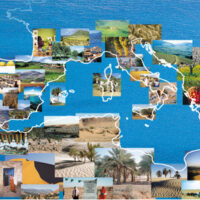 CIHEAM MontpellierOur vision is that of a Mediterranean basin characterised by a spirit of cooperation.
CIHEAM MontpellierOur vision is that of a Mediterranean basin characterised by a spirit of cooperation.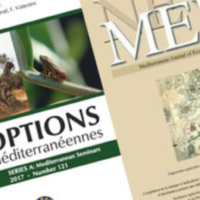 CIHEAM publicationsOur publications and communication tools aim to facilitate decision-making processes for political, economic and agricultural actors in the Mediterranean region
CIHEAM publicationsOur publications and communication tools aim to facilitate decision-making processes for political, economic and agricultural actors in the Mediterranean region News and events
News and events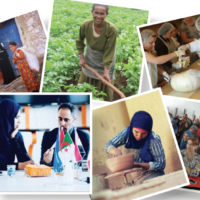 Press review (Scoop.it)
Press review (Scoop.it) Master programmesThe CIHEAM Montpellier stands for both personalised accompaniment and international openness.
Master programmesThe CIHEAM Montpellier stands for both personalised accompaniment and international openness.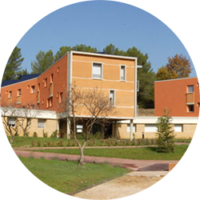 Campus & student lifeSince 1962, almost 95% of our foreign students have been granted accommodation on site.
Campus & student lifeSince 1962, almost 95% of our foreign students have been granted accommodation on site.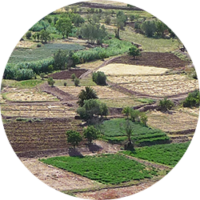 Doctoral platformShaping the scientists of tomorrow through research training… A natural commitment of the CIHEAM Montpellier
Doctoral platformShaping the scientists of tomorrow through research training… A natural commitment of the CIHEAM Montpellier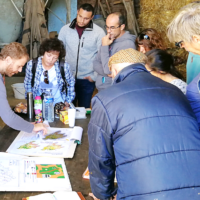 ProjectsOur research and cooperation projects are tools for inclusive development, they take into account the populations and rural and coastal territories of the Mediterranean.
ProjectsOur research and cooperation projects are tools for inclusive development, they take into account the populations and rural and coastal territories of the Mediterranean.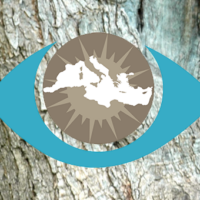 Mediterranean online catalogueA unique Documentation Center on the Mediterranean,
invested in sharing knowledge.
Mediterranean online catalogueA unique Documentation Center on the Mediterranean,
invested in sharing knowledge. Scientific productionThe scientific production of the CIHEAM Montpellier is the fruit of collaborations by our lecturer-researchers, associated experts, students and research partners.
Scientific productionThe scientific production of the CIHEAM Montpellier is the fruit of collaborations by our lecturer-researchers, associated experts, students and research partners. Becoming partnersCreating partnerships is part of the genetic make-up of the CIHEAM Montpellier... Join one of its projects or study programmes, support its actions.
Becoming partnersCreating partnerships is part of the genetic make-up of the CIHEAM Montpellier... Join one of its projects or study programmes, support its actions.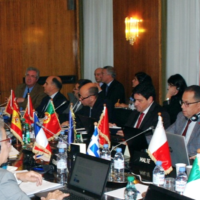 Ministerial meetingsThrough the Ministerial, CIHEAM contributes to the construction of a dialogue between the Mediterranean countries around questions relating to agriculture and the rural world.
Ministerial meetingsThrough the Ministerial, CIHEAM contributes to the construction of a dialogue between the Mediterranean countries around questions relating to agriculture and the rural world.